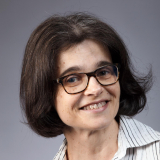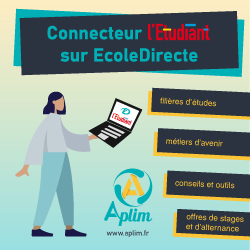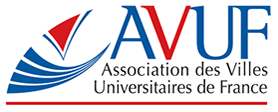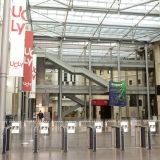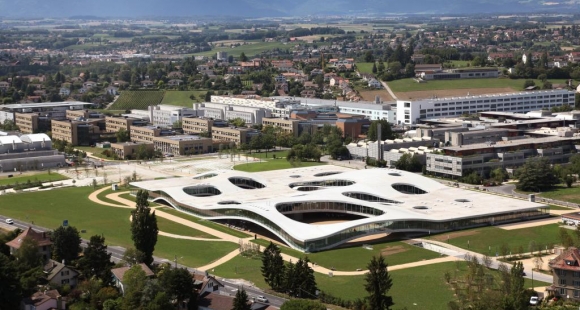
EPFL : Swiss Innovation
There are 15 thousand science and engineering students, high-level researchers and company employees at the "École polytechnique fédérale de Lausanne". EPFL, founded in 1853, has spent the last decade making a name for itself as a leader in international higher education, research and technology transfers.
Founded in 1991, the EPFL Innovation Park houses around 80 companies, ranging from start-ups to multinationals like PSA Peugeot-Citroën, Nestlé and Logitech, in addition to incubators and laboratories. Events like the Managers' Lunch and the Fusebox Idea Challenge bring companies and students together.
The 2004 creation of EPFL's Vice-Presidency for Innovation and Technology Transfer demonstrates the value EPFL places on research. "Transferring knowledge to the economy is part of Swiss culture. It's also part of our mission," explains Deputy Vice President Marie-Laure Berthié. "With our help, entrepreneurs save a quarter of the time they would normally spend launching their company." Today, EPFL produces roughly 100 inventions per year, half of which lead to patents.
Manufacturing MOOCs
Educational innovation has become a well-oiled machine in the country of clockmakers. Two years ago, EPFL founded the MOOC Factory at the Rolex Learning Center. Here, professors use tablets rather than blackboards and get inspiration from a special teaching toolkit.
During the bi-annual call for projects, applicants specify their course's goal, level and length and their preferred platform, Coursera or EdX. Today, EPFL offers 17 MOOCs to 600 thousand students. Plans are underway to create roughly 30 more MOOCs by 2017. Of the €30 thousand invested, one-third has gone to construction and the rest to assistants and film editors.
For Pierre Dillenbourg, Director of EPFL's Center for Digital Education, the MOOCs "have had a major impact on our image. We often get speaking invitations. If 50 thousand students enroll in your MOOC, it's like getting an article published in Nature."
Technion : The Start-up Nation's Secret Weapon
The Technion has single-handedly trained most of Israel's engineers. We find out how the MIT of Haifa became an internationally recognized trailblazer in innovation and entrepreneurship.
Perched atop Mount Carmel, the Technion's wooded campus offers a clear view of Haifa Bay and the MATAM Science-Based Industries Park. The latter houses the research centers of telecommunications and tech giants including Yahoo, Google, IBM and Intel. Welcome to the innovation ecosystem whose reputation knows no bounds.
The Technion is home to 14 thousand students and 18 departments ranging from Computer Science to Medicine, Nanotechnology and Civil and Electric Engineering. The school taps into the local entrepreneurial spirit and "offers a unique combination of basic research and applied sciences," explains Boaz Golany, Vice President for External Relations and Resource Development.
The Technion's annual in-country tuition of less than $3,000 is low for Israel and the government funds 70% of its operational budget. There are three Nobel laureates in Chemistry on its teaching staff: Avram Hershko, Aaron Ciechanover and Dan Shechtman. The Technion's multidisciplinary approach is so successful that 70% of its alumnae have founded or run high-tech start-ups.
The school also boasts prowess in technology transfers. Thanks to its $160 million research and development budget, transfers should generate close to $30 million in licensing revenue this year. Benny Soffer, head of T3, the Technion's commercial arm, explains, "We have roughly 50 companies in our portfolio and we have licensed technology from 30 others." Royalties are distributed equally between the university and the researchers.
Now foreigners are following the Technion's lead. In November 2013, Hong-Kong billionaire Li Ka-Shing paid the school $130 million to partner with Shantou University to reproduce the model in China. The Technion has already signed an agreement with Cornell University to build the campus of the future in New York.
